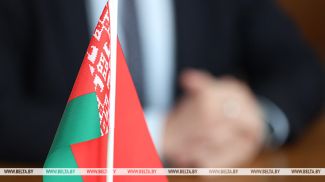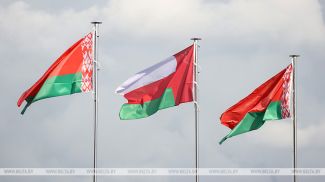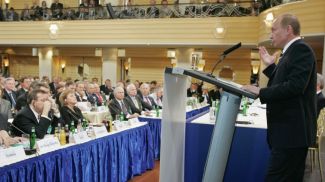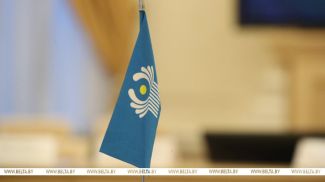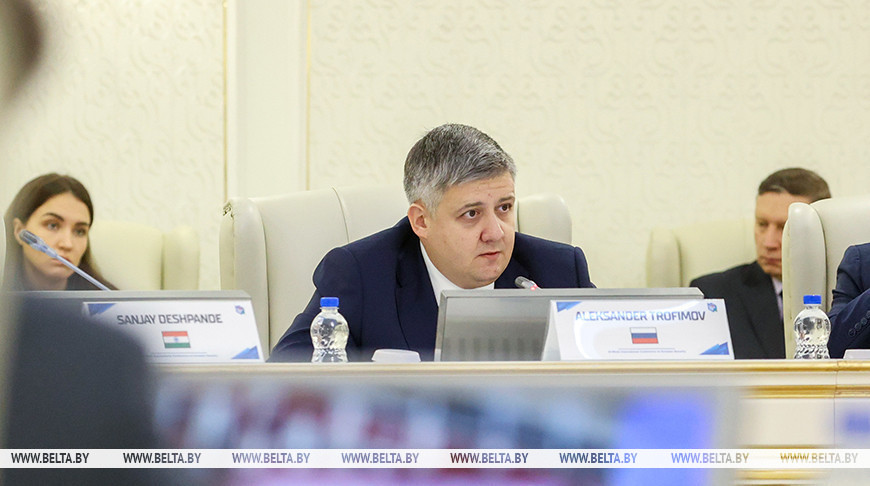
MINSK, 29 October (BelTA) - The experience of the CSTO will underpin a new security architecture in Eurasia, Alexander Trofimov, Ambassador-at-Large of the Ministry of Foreign Affairs of the Russian Federation, said as he spoke at the CSTO Secretariat's thematic event “Prospects for Collective Security in Eurasia: The CSTO Area of Responsibility as a Space for Dialogue” at the 3rd Minsk International Conference on Eurasian Security on 29 October, BelTA has learned.
The world is undergoing fundamental changes, and they are about the creation of a multipolar world, Alexander Trofimov noted. “Our initiative to form a security architecture in Eurasia is open to all countries of the continent. This is part of the work aimed at adjusting international relations to the real multipolar world we live in now. The main goal of the initiative is to address the entire spectrum of security threats both along the perimeter and within Eurasia itself, to promote cooperation among states, viewing security in a comprehensive sense," he explained.
The new security architecture should integrate not only future formats but also existing agreements and arrangements between potential and current participants, the expert believes. It should be based on the idea of equal and indivisible security, relying primarily on two principles: the right of each state to independently choose how to ensure its own security, and the recognition that the security of one cannot be achieved at the expense of the security of others.
“In reality, we already have a foundation to build upon:a developed network of bilateral ties among Eurasian states and regional security structures, primarily the CSTO. It is important to note that these structures do not duplicate each other but operate in an integrated manner," the expert emphasized. “A key element of our work is the treaty that formed the CSTO. It is intended to become central to our initiative. The organization's philosophy is based on the principles of constructive engagement and cooperation, which are reflected in the statements of the CSTO member states' foreign ministers on common approaches to ensuring security in the Eurasian space. This step was important, and the work must continue. In practice, we are interested in the experience of the CSTO's mechanisms, which address a wide spectrum of challenges, from traditional military threats and collective security to the security of the information space. Terrorism and extremism remain the primary challenges, especially given the situation in Afghanistan, which requires joint efforts.”
According to Alexander Trofimov, Western countries are opposing our trends in strengthening Eurasian security. “They are attempting to use the regions of the South Caucasus and Central Asia to promote their own interests, including through special agreements that go beyond trade and cooperation. We are confident that our allies understand this. We welcome the development of any ties, but believe that the partners of our allies should respect their interests and existing commitments. We also see potential for expanding the CSTO's horizontal interaction with other Eurasian integration associations based on the principles of synergy and complementarity," he noted.
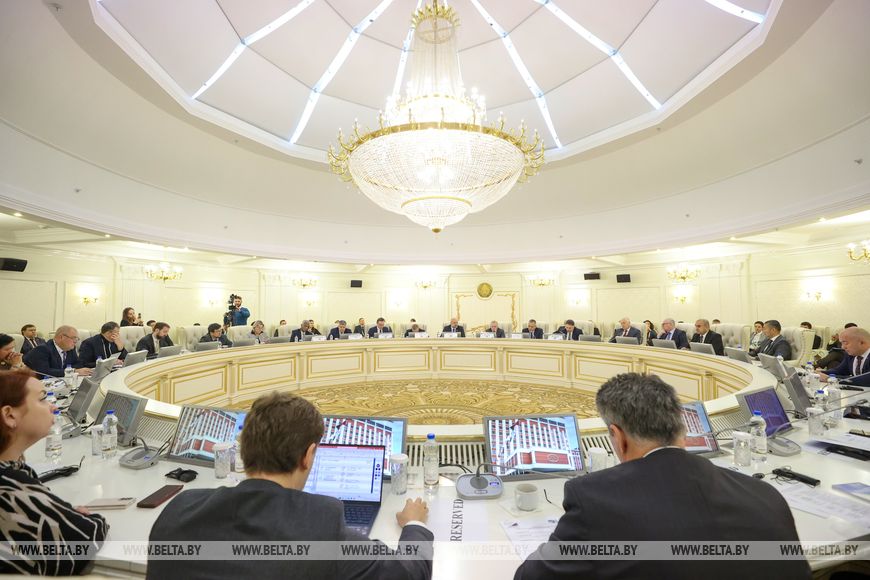
The Russian security architecture initiative harmoniously complements the Global Security Initiative, providing a solid military-political foundation that excludes military diktat by external forces in the region, the expert assured. Interaction in other areas is also built upon this foundation. “Our Belarusian colleagues have proposed developing a framework document that would outline the political and legal foundations for interaction among Eurasian states in the field of security. This document may become the Eurasian Charter for Diversity and Multilateralism in the 21st Century, and we propose to begin its development. The task is complex, but we count on the active contribution of our CSTO allies in advancing this idea," the expert concluded.
The world is undergoing fundamental changes, and they are about the creation of a multipolar world, Alexander Trofimov noted. “Our initiative to form a security architecture in Eurasia is open to all countries of the continent. This is part of the work aimed at adjusting international relations to the real multipolar world we live in now. The main goal of the initiative is to address the entire spectrum of security threats both along the perimeter and within Eurasia itself, to promote cooperation among states, viewing security in a comprehensive sense," he explained.
The new security architecture should integrate not only future formats but also existing agreements and arrangements between potential and current participants, the expert believes. It should be based on the idea of equal and indivisible security, relying primarily on two principles: the right of each state to independently choose how to ensure its own security, and the recognition that the security of one cannot be achieved at the expense of the security of others.
“In reality, we already have a foundation to build upon:a developed network of bilateral ties among Eurasian states and regional security structures, primarily the CSTO. It is important to note that these structures do not duplicate each other but operate in an integrated manner," the expert emphasized. “A key element of our work is the treaty that formed the CSTO. It is intended to become central to our initiative. The organization's philosophy is based on the principles of constructive engagement and cooperation, which are reflected in the statements of the CSTO member states' foreign ministers on common approaches to ensuring security in the Eurasian space. This step was important, and the work must continue. In practice, we are interested in the experience of the CSTO's mechanisms, which address a wide spectrum of challenges, from traditional military threats and collective security to the security of the information space. Terrorism and extremism remain the primary challenges, especially given the situation in Afghanistan, which requires joint efforts.”
According to Alexander Trofimov, Western countries are opposing our trends in strengthening Eurasian security. “They are attempting to use the regions of the South Caucasus and Central Asia to promote their own interests, including through special agreements that go beyond trade and cooperation. We are confident that our allies understand this. We welcome the development of any ties, but believe that the partners of our allies should respect their interests and existing commitments. We also see potential for expanding the CSTO's horizontal interaction with other Eurasian integration associations based on the principles of synergy and complementarity," he noted.

The Russian security architecture initiative harmoniously complements the Global Security Initiative, providing a solid military-political foundation that excludes military diktat by external forces in the region, the expert assured. Interaction in other areas is also built upon this foundation. “Our Belarusian colleagues have proposed developing a framework document that would outline the political and legal foundations for interaction among Eurasian states in the field of security. This document may become the Eurasian Charter for Diversity and Multilateralism in the 21st Century, and we propose to begin its development. The task is complex, but we count on the active contribution of our CSTO allies in advancing this idea," the expert concluded.




